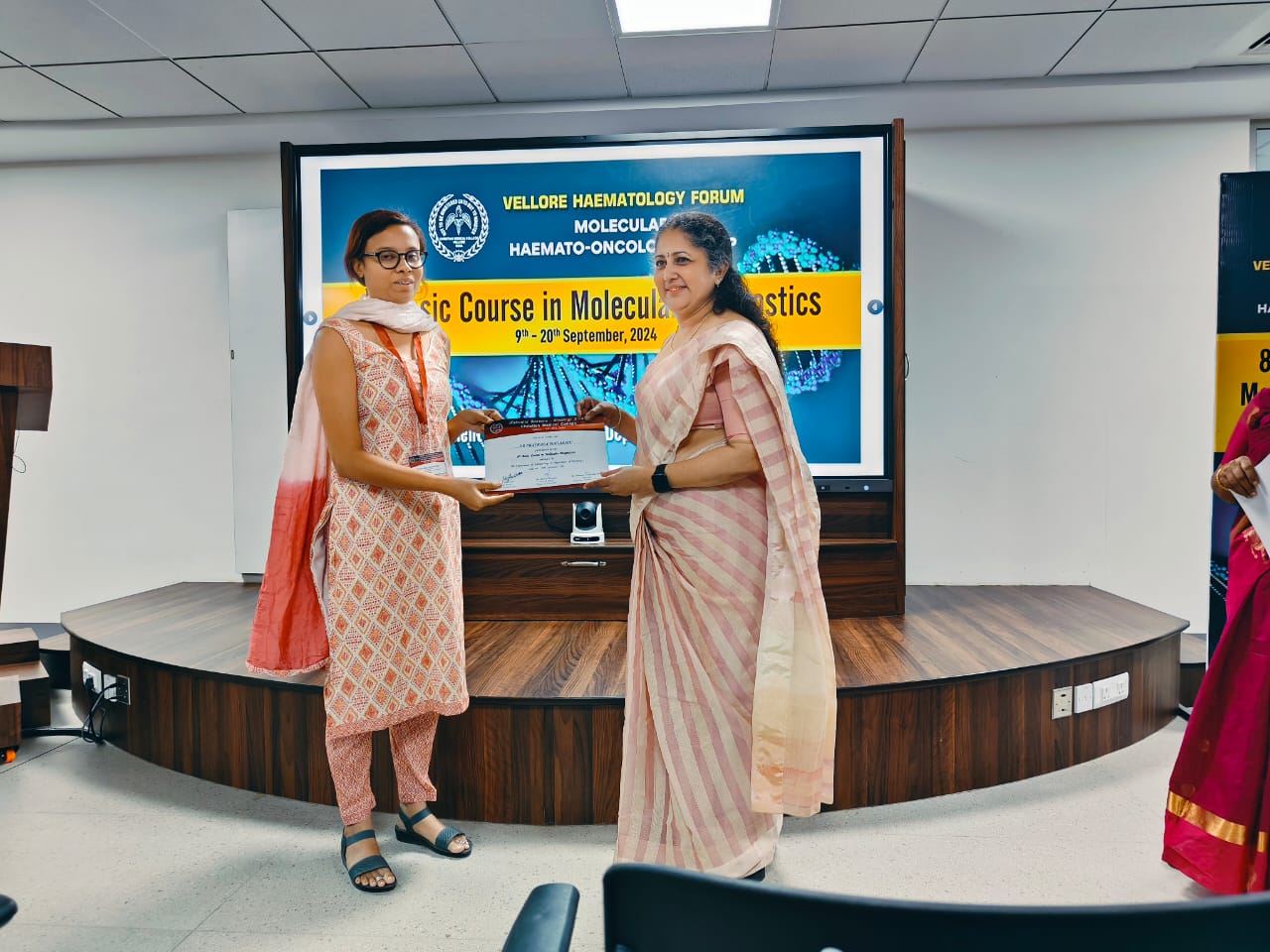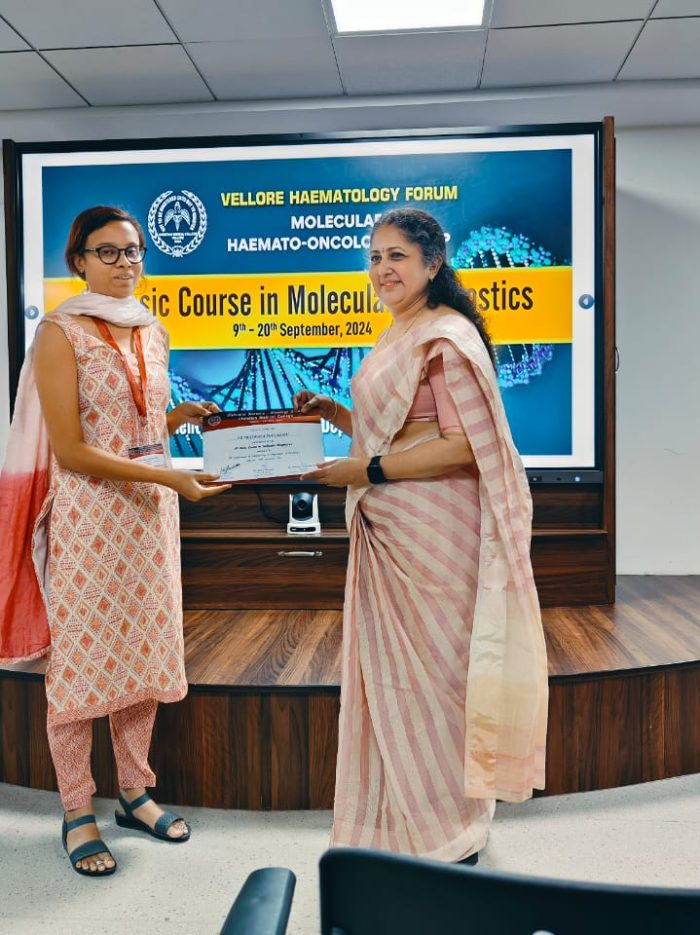REPORT ON ATTENDANCE AT THE 8TH BASIC MOLECULAR PATHOLOGY COURSE
Conducted by: Department of Pathology and Department of haematology , Christian Medical College (CMC), Vellore
Dates: September 8-20, 2024
Introduction:
From September 8 to 20, 2024, I had the privilege of attending the 8th Basic Molecular Pathology Course at Christian Medical College (CMC), Vellore. This comprehensive program was designed to enhance our understanding of molecular techniques essential for modern pathology, focusing on DNA and RNA extraction, PCR methodologies, and the analysis of results.
Course Overview:
The course was structured into theoretical sessions and hands-on practical workshops. Renowned experts in molecular pathology led the sessions, providing insights into the latest advancements in the field. The curriculum covered the following key areas:
- Fundamentals of Molecular Pathology
– Introduction to molecular biology principles.
– Overview of the role of molecular techniques in pathology.
- DNA and RNA Extraction Techniques
– Detailed protocols for extracting high-quality DNA and RNA from various biological samples.
– Emphasis on troubleshooting common extraction challenges.
- Polymerase Chain Reaction (PCR) Techniques
– Hands-on training in different types of PCR, including conventional, real-time, and nested PCR.
– Practical sessions focused on designing primers, optimizing reaction conditions, and conducting the
amplification process.
- Result Analysis and Interpretation
– Methods for analyzing PCR results using gel electrophoresis and gene scan.
– Introduction to bioinformatics tools for interpreting genetic data.
Hands-On Experience:
The hands-on sessions were particularly valuable, allowing participants to apply theoretical knowledge in a practical setting.
Key activities included:
– DNA Extraction: We performed DNA extraction from both fresh and preserved tissue samples, gaining experience in using various extraction kits and methods.
– RNA Extraction: Techniques for isolating RNA were explored, with a focus on preserving RNA integrity for downstream applications.
– PCR Work: Participants designed and optimized PCR experiments. Each participant had the opportunity to run their own PCR assays, followed by visualization and analysis of results through gel electrophoresis and gene scan.
– Result Interpretation: We engaged in discussions on interpreting PCR results, learning to distinguish between positive and negative controls, and recognizing potential artifacts.
Networking and Collaboration:
The course also facilitated networking with peers and instructors from diverse backgrounds. This interaction fostered an environment of collaboration, enabling the exchange of ideas and experiences related to molecular pathology practices in different settings.
Conclusion:
Attending the 8th Basic Molecular Pathology Course at CMC Vellore was an enriching experience that significantly enhanced my practical skills and theoretical knowledge in molecular pathology. The combination of expert instruction and hands-on practice equipped me with essential techniques for future research and clinical applications. I am eager to apply what I have learned to advance my contributions to the field of pathology.
Acknowledgements:
I would like to extend my heartfelt thanks to the Dr Abhishek MG, HOD, department of pathology; entire department of pathology,:Dr MG Shivaramu, Principal, AIMS: Dr Prashantah Kalappa, Dean- Research, and Dr. C K Subbaraya, Registrar, Adichunchanagiri University for their support in attending this course. The experience was invaluable and has inspired me to further explore the applications of molecular pathology in my future endeavours.
Dr Prajwala Nagaraju,
Assistant professor,
Department of pathology,
AIMS



